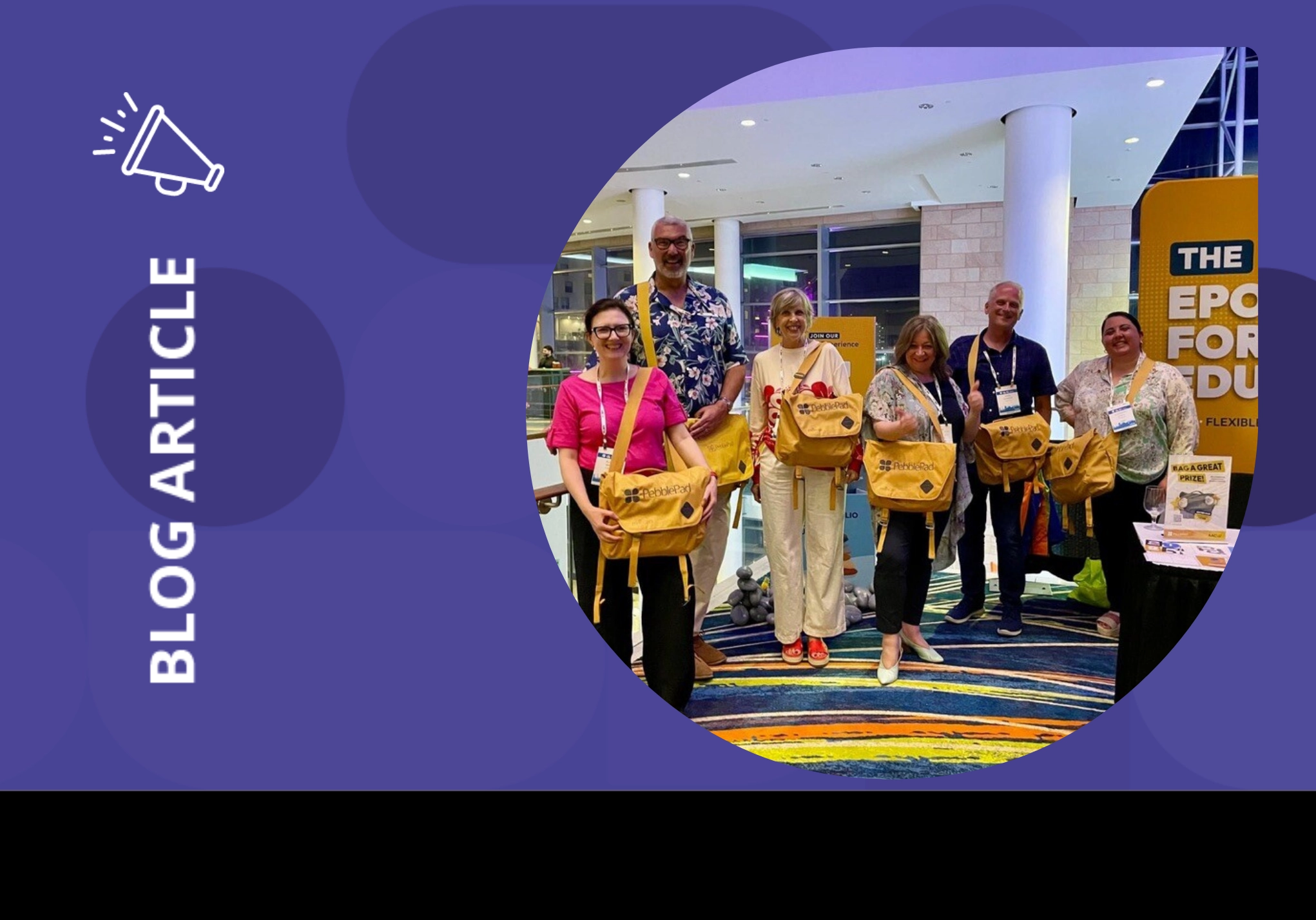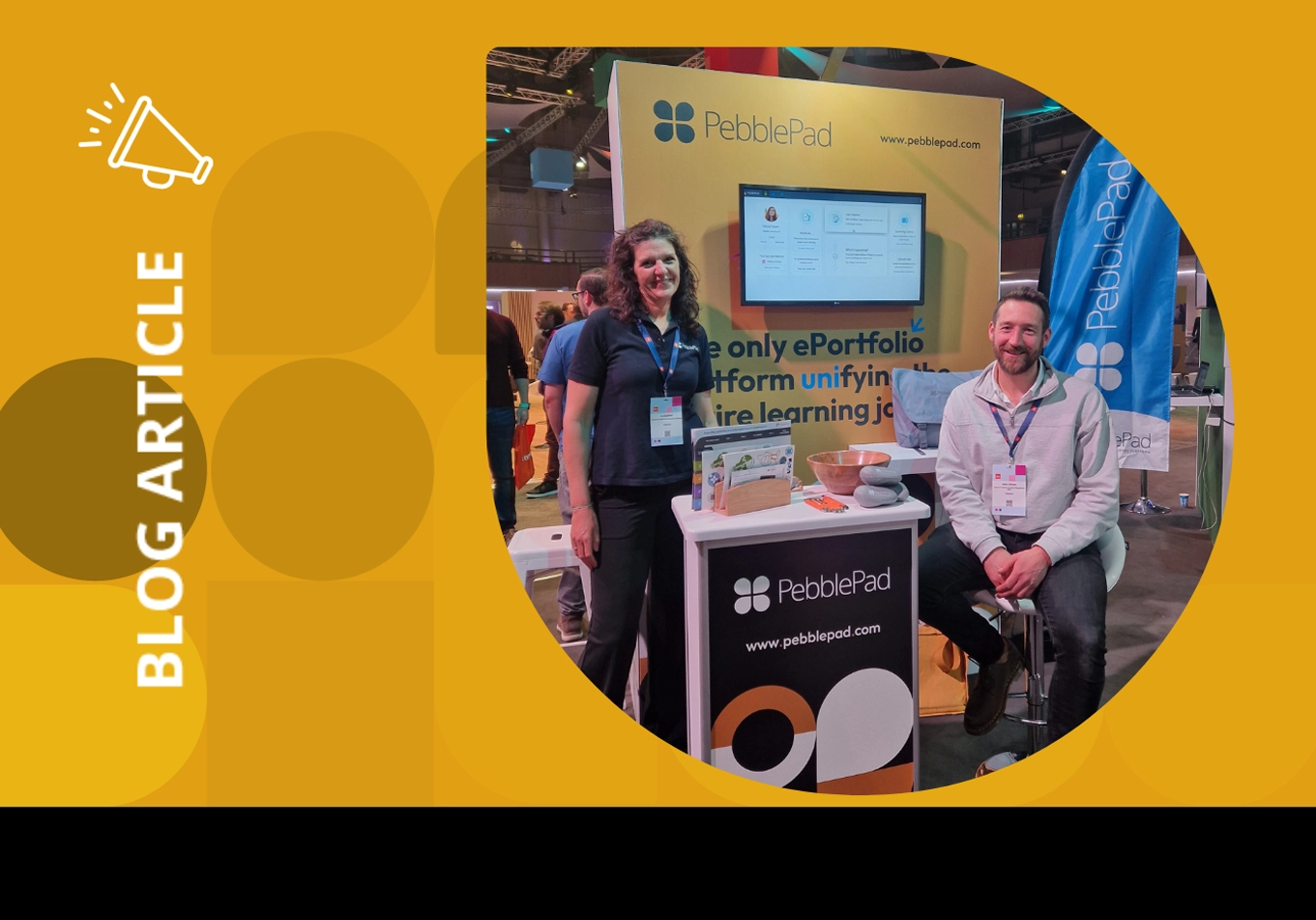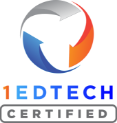In the ever-evolving landscape of education, the integration of PebblePad ePortfolios has emerged as a transformative approach to assessment.
This is especially true at the University of Melbourne. With a focus on authentic assessment and developing work-ready graduates, its Physiotherapy teaching team embarked on a journey to incorporate PebblePad ePortfolios into the Doctor of Physiotherapy (DPT) program. This blog post shares the team’s approach to enhancing learning and assessment experiences, the lessons they learned, and the impact of this innovative pedagogy.
Redeveloping assessments
The Doctor of Physiotherapy (DPT) program at The University of Melbourne is renowned for its well-designed curriculum, real-life clinical experiences and commitment to producing highly skilled physiotherapists. The integration of ePortfolios was designed to enhance the educational experience even further by providing students with a platform to document their learning journey, reflect on their experiences and demonstrate their professional competencies.
In their 2019-2020 renewal cycle, the DPT teaching team recognised an opportunity to shift from traditional assessments and embrace ePortfolio pedagogy. Under the leadership of course coordinator Associate Professor Karen Donald, the team set about implementing PebblePad to reimagine the program’s assessment for learning tasks. Work was undertaken to redevelop assessments that would leverage reflective learning techniques such as ‘What? So what? Now what?’ and allow students to create, collect and curate artefacts for their ePortfolio throughout their learning journey.
The teaching team purposefully integrated ePortfolio pedagogies into the program, noting that different levels of skills and understanding would need to be developed for effective adoption. They also referred to resources provided by PebblePad as well as those from the internal support team at the university. Cooperatively sharing their experiences and learnings from across the program in different subjects enabled teaching staff to adapt and provide a cohesive experience for the students.
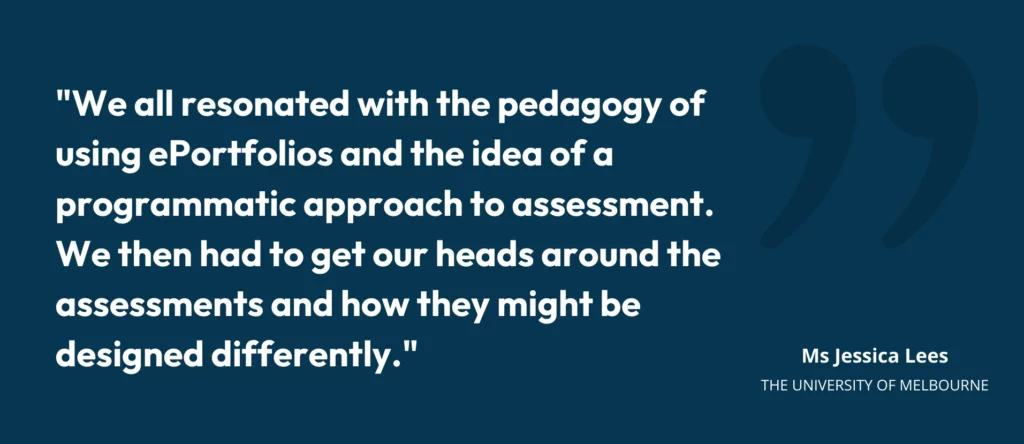
The ‘golden thread’
The ePortfolio-based approach was the ‘golden thread’ to connect programmatic assessment tasks from individual subjects in meaningful ways across the program. For students, it helped foster a deeper understanding of the subject matter and promoted continuous professional development throughout the three-year program, and beyond their formal learning journey.
The implementation of ePortfolio-related assessments was carried out iteratively, starting from the first year of the DPT program. The assessment design incorporated elements such as paper patients (simulated patient cases), case studies and individual reflective learning tasks that were collected in PebblePad. This gradual introduction allowed students to build familiarity and confidence with PebblePad as well as develop their skills in reflective practice.
As students entered their third year, the ePortfolio tasks had a looser structure, allowing for greater creativity, coupled with a mandate of ‘knock us out, show us what you want to do’. Instructors noted that the resulting PebblePad ePortfolios provided a comprehensive view of students’ competencies, at times amazing them with the effort and creativity of student submissions.
The iterative nature of the implementation process also allowed for refinement and improvement of the PebblePad ePortfolio tasks and submissions. Structured rubrics were developed, acting as a touchstone to guide staff and students on the expectations and purpose of the tasks, while assessors provided detailed feedback to students as they progressed. While noting the challenge of balancing the workload for assessors, the new approach proved to be a valued addition to the curriculum due to the flexibility of the platform and the reflective practices that are so critical in allied health professions.
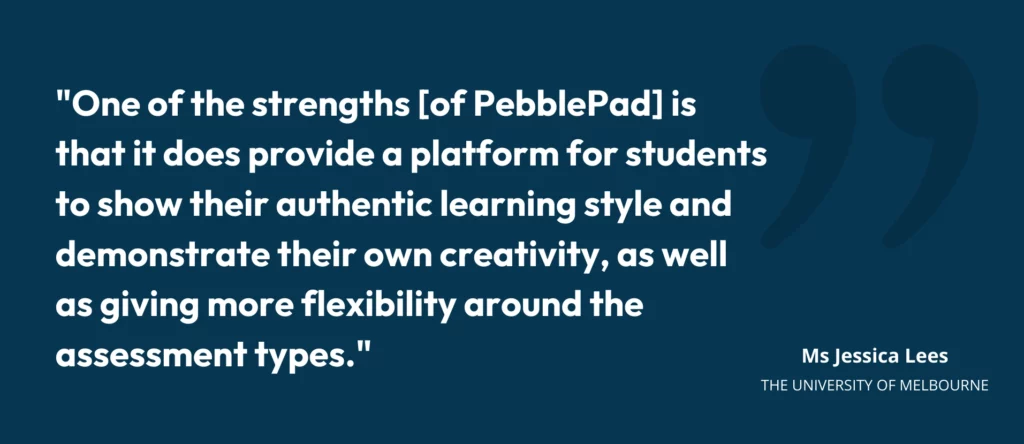
Feedback and improvement
Overall, the use of PebblePad and ePortfolio pedagogy has been successful. The team was impressed with the student submissions and the opportunity to see things they would not have seen from their learners if relying on the previous assessment approaches. The course coordinator noted that for the physiotherapy students, the ePortfolios were, “a real artwork they can not only use as assessment tasks throughout the course, but they can then show to prospective employers and to further their journey.”
A key takeaway from this initiative was the importance of clear communication to ensure that both students and assessors understood the purpose and requirements of PebblePad ePortfolio tasks. Rubrics were critical in providing consistent and constructive feedback across the diverse assessing team, which included full-time and casual staff. Recognising that marking workloads need to be considered, clearer guidelines will be developed for creative showcase ePortfolios to help reign in the scope of marking work.
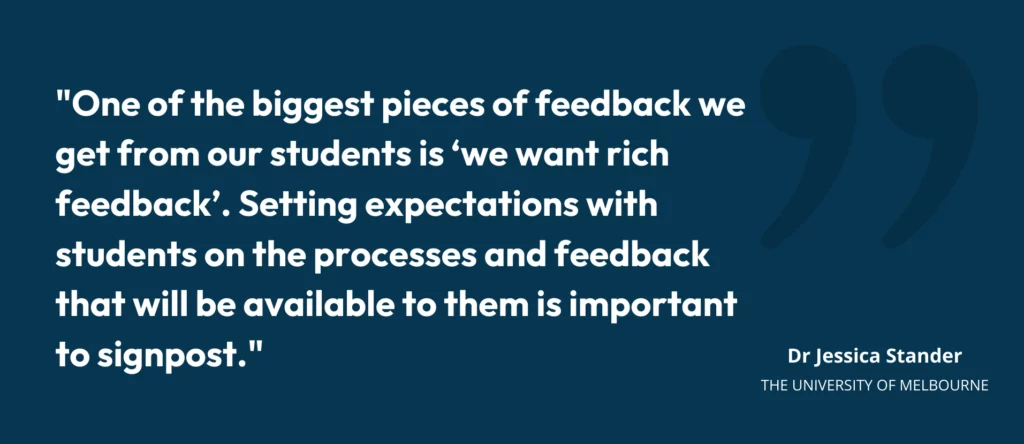
Moving forward
The success of this initiative was largely due to strong leadership and the collaborative efforts of the dedicated team. The team’s willingness to adjust based on feedback has been vital for the continuous improvement of the program. “It has been a great journey for our team to be on – to bounce ideas off each other over the past six years,” remarked the course coordinator.
In the future, there will be improved and repeated signposting for students on the purpose of tasks and their potential ongoing use or relevance to other subjects. This will help students make the connections throughout their programmatic assessment tasks and experiences. It was also noted that students would benefit from more tips on how to get the most out of PebblePad’s learning technologies features like tagging and Alumni account creation.
The next phase of work for this innovative teaching team will build upon their learnings and further embed a programmatic approach to assessments across all subjects. This approach has already been considered as a part of the curriculum/assessment design, and connections between assessment tasks will be made more explicit. Being clear about this holistic approach helps students to see the bigger picture and understand how transferrable their skills and practices are as they transition from being a ‘student’ to an ‘emerging professional’, and continue on their learning journey.
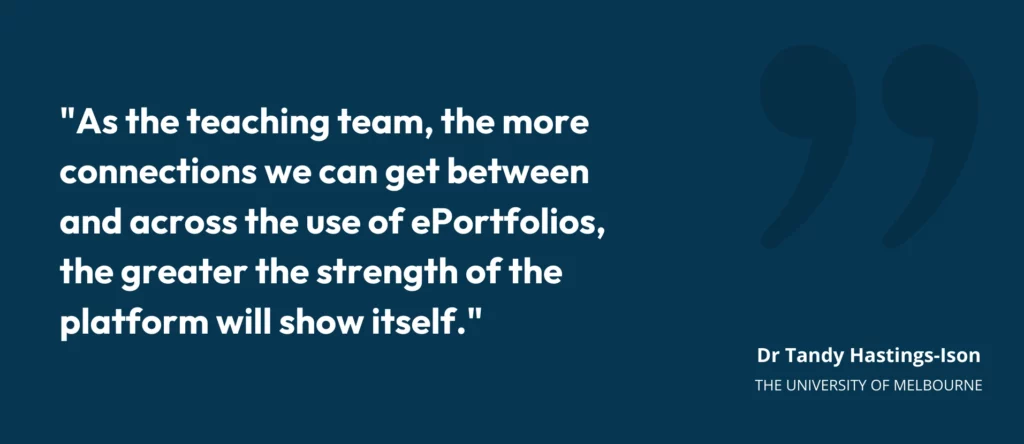
For more details download the case study – Embracing ePortfolios to create innovation in learning today.









